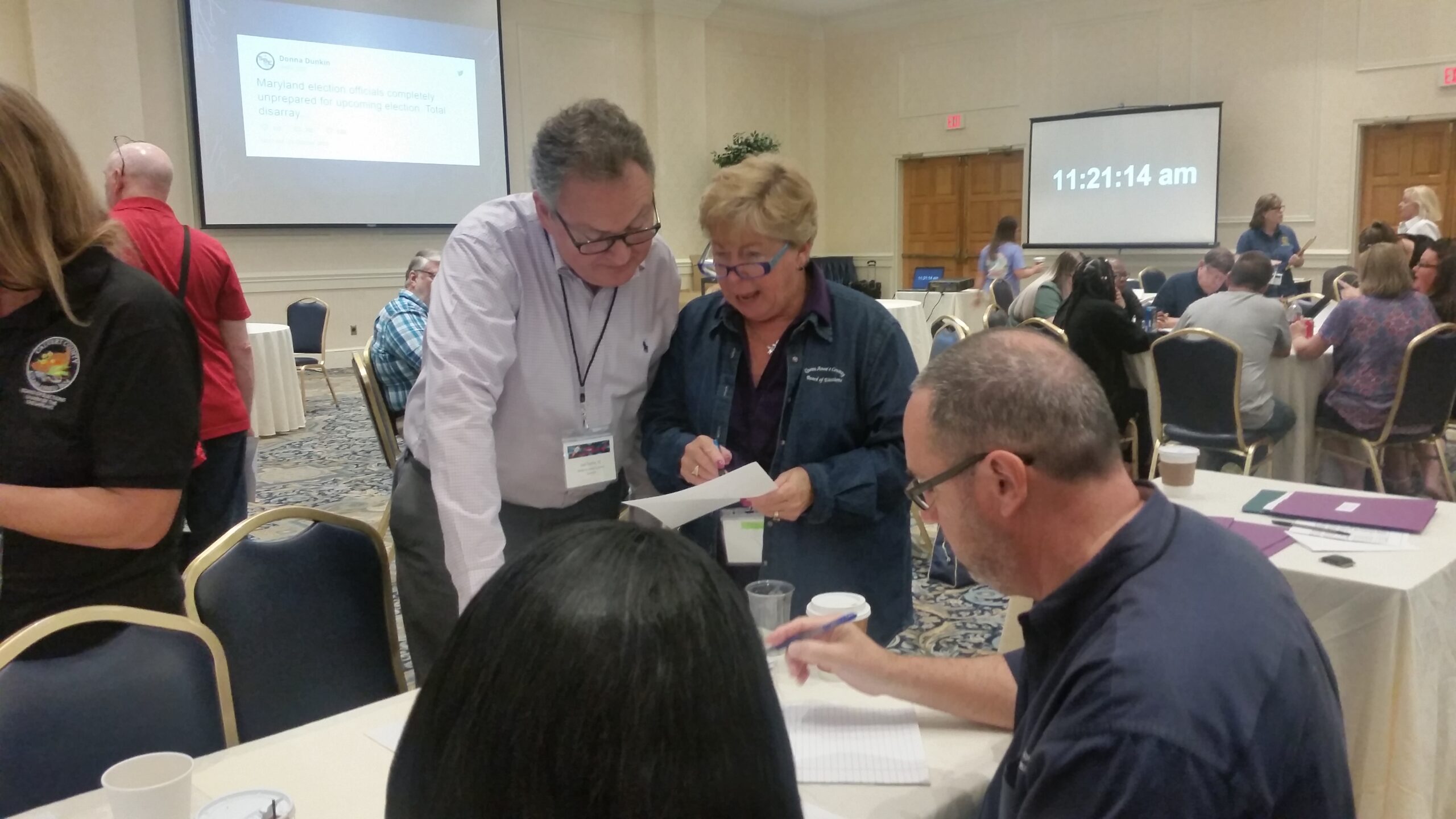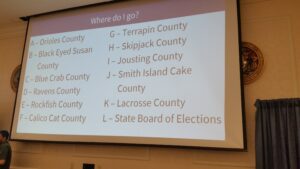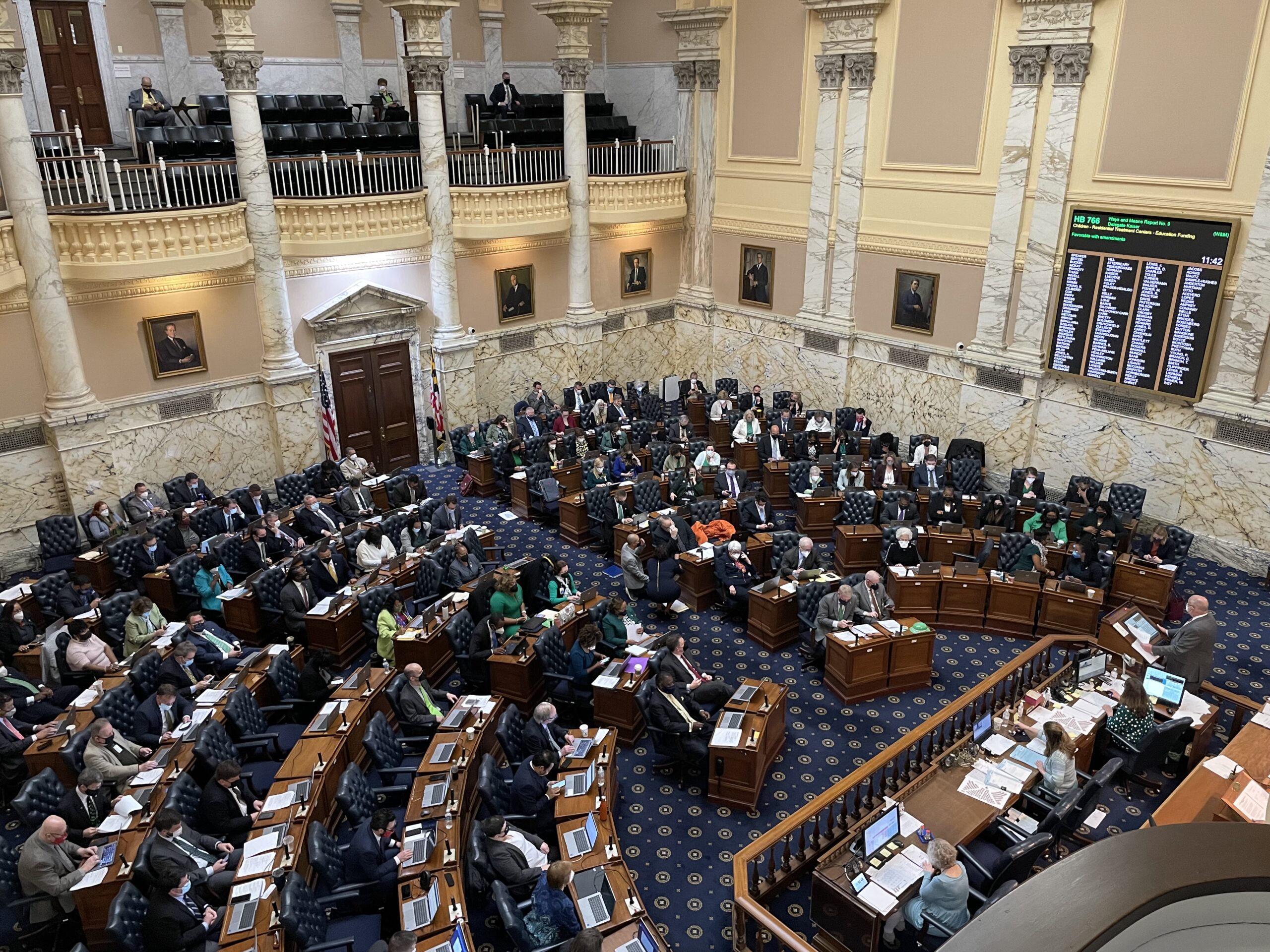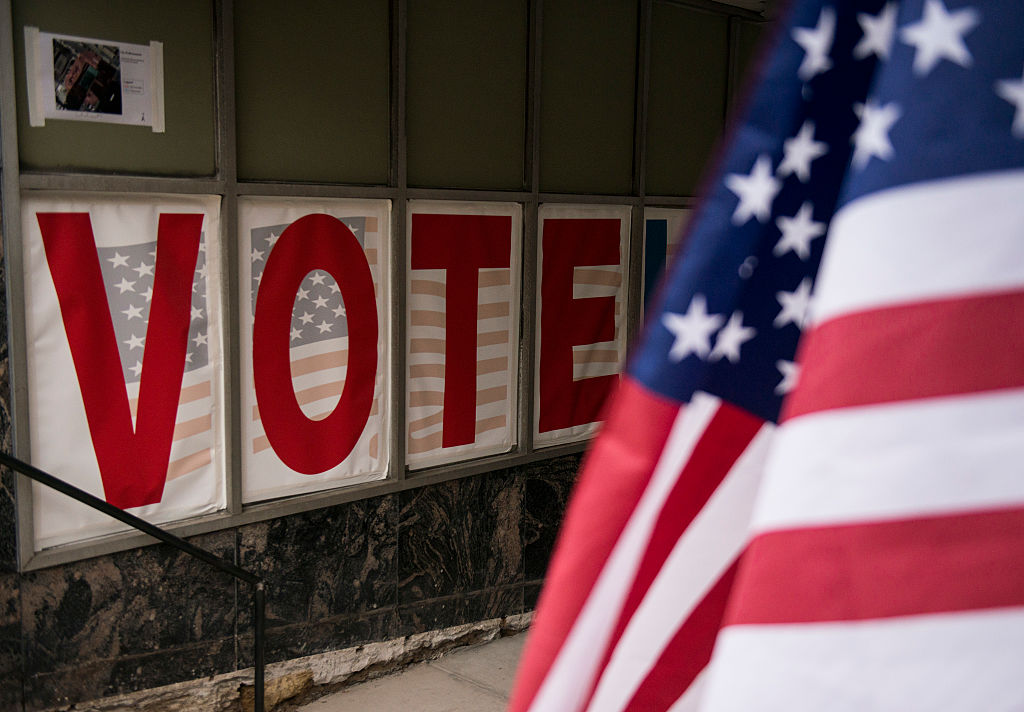Making Maryland Safe for Democracy

Ocean City, a couple of days before the start of Memorial Day weekend: Traffic is light, parking is abundant, there’s zero wait at Dumser’s Dairyland, and you can still get a motel room for 65 bucks a night.
The big hotels and restaurants and tourist attractions are trying to get ready – but several are clearly still working the kinks out. It feels a little like a dress rehearsal just before opening night. Mistakes will be made.
The weather is lovely – a little breezy and chilly for a full-on beach day, but still, it’s awfully pleasant to be outside.
But we are not outside on this day. We are spending hours in a big conference center ballroom. And while the rest of Ocean City prepares for a long weekend of play – and the kickoff of the summer season – there’s very serious work to be done. Mistakes will made here, too.
“Why are we here?” asks Erin E. Perrone, director of the Election Reform & Management Division at the Maryland State Board of Elections. “We are here to sustain democracy in Maryland.”
It sounds kinda heavy – and it is.
The consultants call this a “table-top exercise.” What it is, really, is a disaster drill. More than 100 state and local elections officials from Maryland are here to practice and play-act what to do if something goes haywire with the election process.
“Today it’s going to be the worst election ever,” Tracey Hartman, director of special projects at the state elections board, explains. “Everything that can go wrong will go wrong.”
But Hartman seeks to reassure her fellow elections professionals: “It’s going to be a very busy day in here. It’s going to be a crazy day. But it’s going to be a lot of fun.”
When the session begins around 9:30 a.m., the room is divided in three ways: Some people are assigned to be officials at the State Board of Elections. Some are asked to play-act the role of local elections officials (the state was divided into 11 fictional counties – Orioles, Black-Eyed Susan, Blue Crab, Ravens, Rockfish, Calico Cat, Terrapin, Skipjack, Jousting, Smith Island Cake and Lacrosse). The rest are tasked with being election judges at precincts within the 11 counties.

Then, relentlessly, and in a variety of ways, the officials are fed a series of crises to deal with – immediately and collaboratively. The hypothetical crises take place in four distinct periods during an election cycle: the four months leading up to early voting; the early voting period; the few days between early voting and Election Day; and Election Day.
A Maryland Matters reporter was invited to attend the daylong session and play the role of journalist, going from table to table, thrusting a microphone in people’s faces, asking the kinds of questions that reporters ask in situations like these.
We come away with the distinct impression that our election system is a lot more fragile than we thought.
And that the people who run elections have much more complicated, multi-layered jobs than we thought.
We are asked not to write about the specific hypothetical disasters that the elections officials are asked to tackle, lest any evil-doer get any ideas.
But they fall into several distinct categories: Lawsuits that impact the location of polling places. Equipment failures and system breakdowns. False or faulty information being spread in the media. Extreme weather and other natural disasters. Computer hacks. Protesters or criminals intent on disrupting the election process. Bomb threats. Ineligible candidates. And more.
Social media is a killer. A Russian hack can be a disaster, of course; but “fake news” can be disseminated on social media with speed and relative ease, amounting to a thousand small but brutal cuts. Faulty information on Facebook or Twitter – whether delivered maliciously or mistakenly – gets into the media bloodstream quickly, and demands a swift, coordinated and emphatic response. Overburdened election workers – particularly on Election Day – may not be able to cope or compete.
Six hours later, the exhausted group is ready to take a breath and ponder what they’ve learned.
“Give yourself a huge round of applause,” says Guy C. Mickley, the Howard County director of elections, one of the main organizers of the day’s events. His colleagues do just that.
Then, Mickley injects one last dose of reality. This very afternoon, he reports, due to powerful storms on the other side of the Chesapeake Bay, the Montgomery County Board of Elections is without power – and someone is stuck in an elevator there. And Mickley’s own office in Columbia is flooding.
“No matter how much preparation and planning you’re doing,” he reminds the elections officers, “something’s gonna happen.”




 Creative Commons Attribution
Creative Commons Attribution